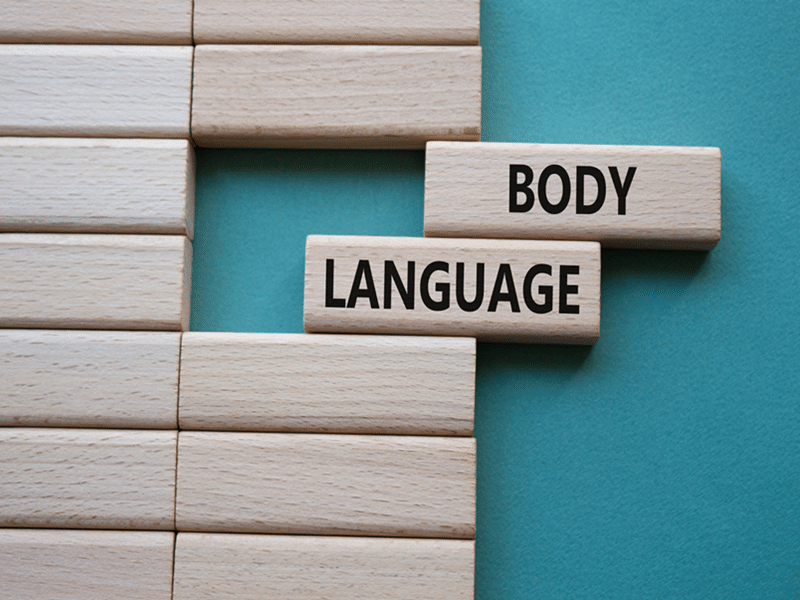What is Body Language? Body Language is everything you don’t […]

What is Body Language?
Body Language is everything you don’t say, also known as non-verbal communication. Albert Mehrabian, a researcher of body language who first broke down the components of a face-to-face conversation, found that communication is 55% nonverbal, 38% vocal, and only 7% words.
Is Body Language important in a Job Interview?
As well as preparing for potential questions and making sure you are organised, your body language is an important factor to consider when preparing for virtual or in-person interactions or interview. Your body language is the first impression recruiters and interviewers will have of you and could leave a poor impression if not managed effectively.
So, what’s your body language saying about you? Here are 7 key physical behaviours to help you think about your body language as part of your interview preparation.
1.Smile
Your smile goes a long way in creating a first impression and communicates warmth, approachability and enthusiasm. Try and smile naturally as you meet your interviewers and throughout the interview at appropriate moments. Try and avoid forcing a smile the whole time and this can come across as insincere. Let your smile and expressions reflect your answers, questions and tone.
2.Posture
Keeping good posture conveys engagement and confidence. During your interview, make sure you’re sitting upright with your shoulders relaxed. Slouching can make you appear disinterested, while leaning towards the interviewer at appropriate times can signal attention. Be conscious that you’re not folding your arms during the interview, as this can come across as defensive.
3.Handshake
The handshake is often your first physical interaction with an interviewer and so you want to make sure it sets the tone. Make sure your handshake is firm but not overpowering and ensure you maintain eye contact as this conveys professionalism and confidence. It may be that some people prefer not to shake hands, particularly after the COVID pandemic, so if a handshake isn’t offered, meet instead with a warm smile and a respectful appropriate greeting.
4.Focus
You need to maintain focus in your interview so that you’re fully present throughout. Fidgeting, glancing around or shifting in your seat are signs that you’re not completely engaged with the interviewer and may be distracting for them too. Particularly on remote interviews where the focus is even more predominantly on you, even small distractions can be noticeable. Make sure your phone or other tech is away from you and avoid time checking; even subtle glances can indicate you’re not taking the interview seriously.
5.Keep Calm
Keep measured and calm and match your physical gestures to this. Opt for open and inviting movements rather than overly assertive ones. If you are being interviewed by a panel, make sure you engage with each person equally rather than focussing on one person in case this is taken as hostile.
6.Mirroring
This is the practice of reflecting another person’s posture or gestures, for example, if your interviewer leans forward, you do too. This can create a sense of familiarity and rapport. This can be difficult to do naturally, so you might want to practice with a friend or family-member beforehand. Avoid copying too obviously or too much as this will appear unnatural and may make the interviewer uncomfortable.
7.Eye contact
Maintaining eye contact is one of the most effective ways to convey confidence and shows that you are interested and engaged with what the interview is saying. With that, you need to strike a good balance; make sure you’re not staring as this may be seen as intense, but minimal eye contact may make the interviewer feel you are avoiding questions. Try not to focus on things around the room, no matter how distracting they are!
Final thoughts
There are no hard rules to follow when it comes to body language, but it’s important you are aware of how you communicate non-verbally. It might be a good idea to consider recording yourself doing a mock interview on a platform like MS Teams or Zoom, you can then analyse your body language in advance of any interviews and adjust accordingly.
What is Body Language? Body Language is everything you don’t […]
When the notion of redundancy comes up, the focus often […]
Networking is often one of the most underutilised tools of […]